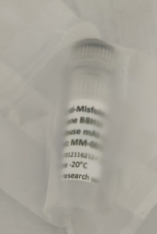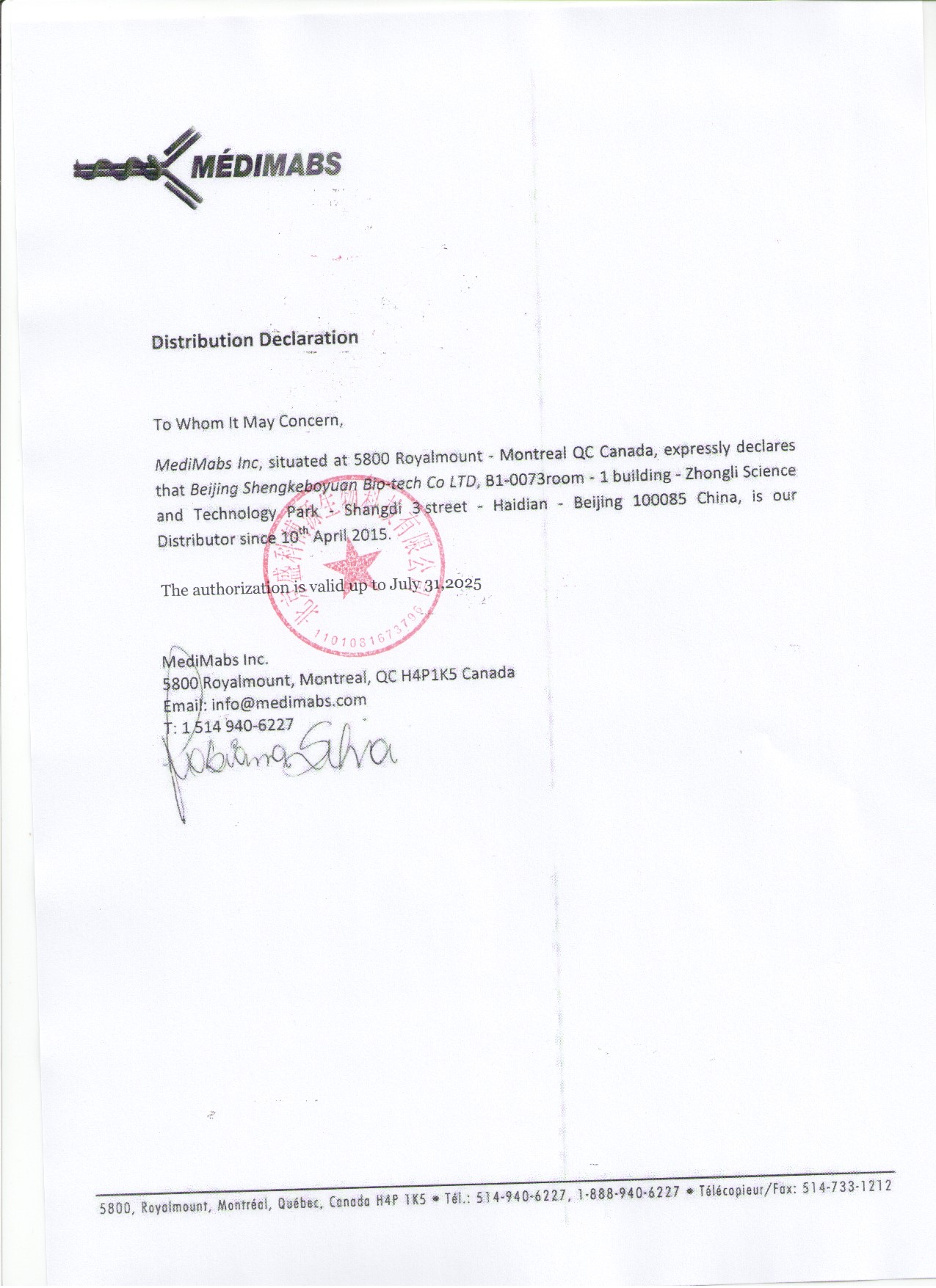 首页>
生物试剂
首页>
生物试剂
商家描述
商家资质信息
产品评价(0)
Target
Phospho Prion Protein (pPrP Ser43)
Target background
Prion related neurodegenerative diseases, called transmissible spongiform encephalopathies, are observed in many animal species. These diseases involve conversion of normal cellular prion protein (PrPc) into a form that is insoluble and resistant to proteases (PrPSc). The protease resistant form can polymerize into fibrils which accumulate in infected tissues and cause cell death and tissue damage. PrPs have an N-terminal signal sequence and a C-terminal linkage to glycosylphosphatidylinositol anchor. The mature protein is a glycosylated protein that associates with cell membranes. Phosphorylation of PrPC at Ser-43 by Cdk5 promotes proteinase K resistance, prion aggregation, and fibril formation in vitro. In addition, Ser-43 phosphorylation is upregulated in scrapie-infected mouse brain relative to controls. Thus, phosphorylation of Ser-43 may be an important mechanism leading conversion of PrPc to PrPSc and the onset of disease. The antibody was raised against Phospho Prion Protein (pPrP Ser43).
Target alias
anti-Phospho Prion Protein, anti-Prion Protein, PrP, ASCR, PrP27-30, PrP33-35C , CD_antigen: CD230
Immunogen
Phospho-peptide
Specificity
A highly specific and sensitive antibody against the phosphorylation of the Ser43 of the Prion Protein. The antibody reacts with the Ser43 (G[pSer]PGGNRYPC) of the Phosphorylated Prion Protein.
Clone ID
---
Preservative
None
Format
Lyophilized serum
Recommend starting dilution
If reconstituted with deionized water in 50 µL: ELISA (phospho peptide) 1:500,000; E (non-phospho peptide) 1:25,000 WB 1:100; IP 1:100; IHC 1:200-1:1000. Optimal dilution has to be determined by the user
Limitations
Research Use Only
Storage
Lyophilized antibodies can be kept at 4ºC for up to 3 months and should be kept at -20ºC for long-term storage (2 years). To avoid freeze-thaw cycles, reconstituted antibodies should be aliquoted before freezing for long-term (1 year) storage (-80ºC) or kept at 4ºC for short-term usage (2 months). For maximum recovery of product, centrifuge the original vial prior to removing the cap. Further dilutions can be made with the assay buffer. After the maximum long-term storage period (2 years lyophilized or 1 year reconstituted) antibodies should be tested in your assay with a standard sample to verify if you have noticed any decrease in their efficacy. To limit antibody loss or degradation, BSA (final concentration 1%) and sodium azide (final concentration 0.02%) can be added to the suggested first dilution. It is important to first verify if those preservatives are compatible with your assay.
 会员登录
会员登录.getTime()%>)
 购物车()
购物车()

 成功收藏产品
成功收藏产品
